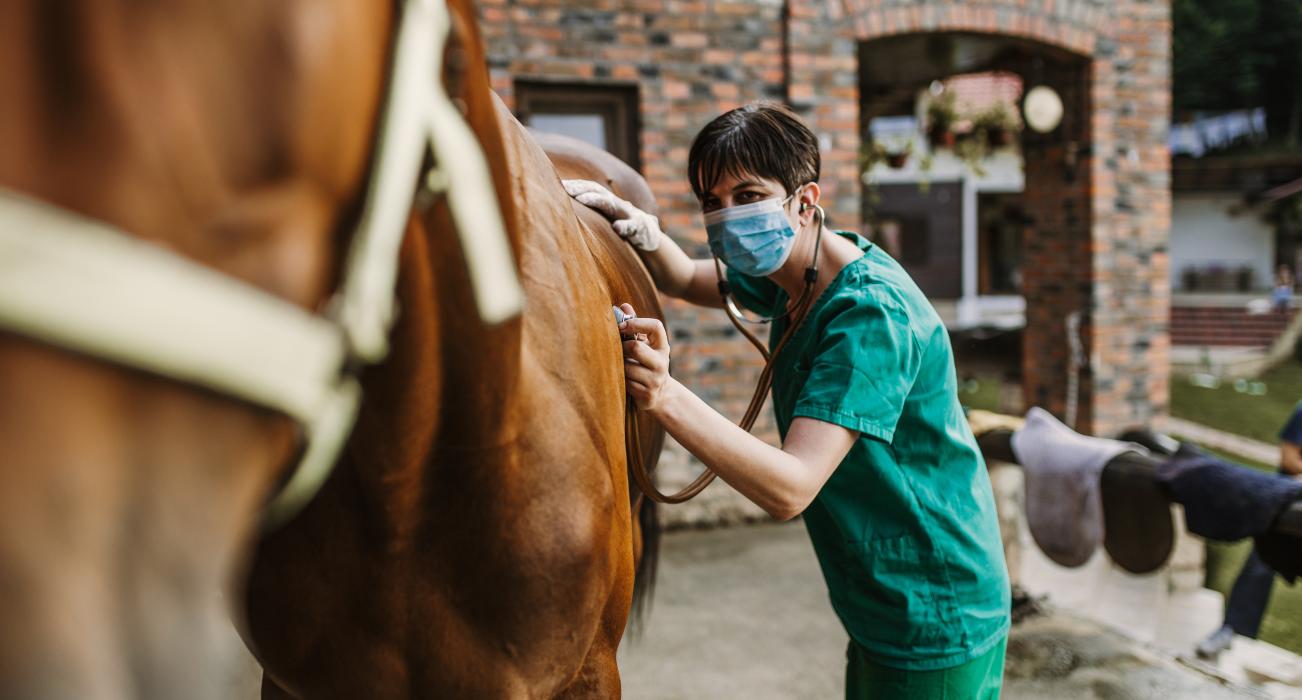Veterinary Medicine
Fact File
Cambridge offers a world class opportunity to study the scientific basis of veterinary medicine and clinical veterinary science.
By taking the two-part course (pre-clinical and clinical) students gain maximum academic advantage from their time in Cambridge by being able to study individual scientific and other subjects in greater depth in addition to their main degree subject of Veterinary Medicine. Our course provides the fundamental building blocks on which to develop and excel in any veterinary field.
The first three years of the course (pre-clinical) lead to the Cambridge BA Degree in Veterinary Science.
In the first two years students study courses in Principles of Animal Management and Preparing for the Veterinary Profession alongside the study of anatomy, physiology, biochemistry, molecular biology and genetics, biology of disease, pharmacology, vertebrate reproductive biology, neurobiology and animal behaviour and comparative vertebrate biology as well as practical animal handling.
The third year is one of the most distinctive aspects of the Cambridge course in which students chose advanced study of a subject from another tripos, with most choosing a biological subject from the Natural Sciences tripos. This gives Cambridge veterinary students an exciting opportunity to work with scientists at the cutting edge of their field and they often also carry out an in-depth research project of their own. Alternatively, you may choose to study a related subject such as Anthropology, History and Philosophy of Science or Management Studies.
Years four to six constitute the clinical part of the course and lead to the Vet MB degree and qualification as a veterinary surgeon as a MRCVS. The final (sixth) year of the degree is lecture free, and involves instead undertaking 40 weeks of 'rotations' experiencing different disciplines and clinical practices within the veterinary hospital in depth and first-hand.
Sixth year students also complete a research project on a subject of their choice - undertaking a total of eight weeks' work, four of which are undertaken after their written and vive voce Vet MB Part III exams in April/May.
At Magdalene we aim to make four offers in Veterinary Medicine each year.
The College, through the Director of Studies in Veterinary Medicine, arranges tutorial teaching in the subjects being taken at undergraduate level. This teaching (supervision) takes the form of an hourly session in each main subject each week during Term. These supervisions are given by experts in the particular area being studied, often by members of the College. The supervision system is unique to Oxford and Cambridge and is highly valued by both the teacher staff and students alike.
The College Library is open 24 hours a day. There are specific veterinary and medical sections which contain copies of all the recommended texts for the University courses. The College Librarian is always willing to consider purchasing any additional texts students think desirable (with the support of the Director of Studies).
Please refer to Subject Requirements on this page and the University of Cambridge Veterinary Medicine page here for further information.
A-level subjects should include Chemistry, and preferably Biology, plus usually at least one of Mathematics or Physics. The minimum offer level is A*AA at A-level.
Other offers may also be based on Scottish Advanced Highers and other qualifications, such as the IB (minimum offer level 41-42 points with 7,7,6 at Higher Level). Advanced Highers and Higher Level qualifications should be taken in sciences where possible. IB applicants starting the new IB Mathematics syllabus are expected to take IB Higher Level 'Analysis and Approaches' for any course where Mathematics is a requirement. If this option is not available at your school, please contact the College for further advice and guidance.
Interviews and Written Assessment
Applicants will also need to take a written assessment. The assessment for Veterinary Medicine is a pre-registration required assessment, the ESAT. This means that you will have to register to sit the assessment at an assessment centre near to you. Registration for the pre-registration required assessment is separate from your UCAS application and it is essential that you are registered by your centre before the deadline, which is 16 September 2024.
See the University Undergraduate Admissions website for further information about registering for the assessment and more details about the format of the assessment, including some sample questions. Please note that your performance in the written assessment will not be considered in isolation, but will be taken into account alongside all the other elements of your application.
Most applicants will then normally be invited for two interviews, each usually lasting about 20-25 minutes. Both interviews will assess whether the applicant has a sufficient knowledge of scientific subjects to allow him or her to progress satisfactorily through the pre-clinical part of the course. In addition, the interviews aim to determine whether the applicant is well motivated to work in veterinary medicine and as evidence for this, candidates are strongly encouraged to have obtained experience in veterinary clinics and places where animals are managed such as farms, zoos stables and / or animal shelters.

